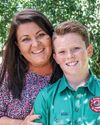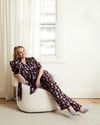
The line at the cafe is longer than usual and I’m already late. Again. But I can’t start the day without coffee so I join the queue and will it to move quickly, yawning as I give myself my usual reprimand — tonight I will go to bed early. Tonight I will get a good sleep. I order a latte and request sugar for extra energy because I haven’t eaten breakfast. Caffeine transfusion complete, I retire to my desk and tap morosely at my keyboard for half an hour until my brain joins the rest of me in the land of the living.
If this morning routine sounds familiar, you might be among the 40 per cent of the adult population that identifies as a night owl. You prefer to sleep late, you’re slow to get going in the morning and around 10pm, when you should go to bed, you’re just getting your second wind. It’s not a new concept, the early bird/night owl divide, but an emerging area of sleep research is discovering there’s far more to the phenomenon than just preference, and that your sleep rhythm, or chronotype, can affect everything from your health and mood to the economy.
“A common misconception is that these two different groups are a choice – night owls just get up late because they’re lazy,” says Monash University researcher Dr Elise Facer- Childs. “That’s a real stigma in society that we need to come away from. Your chronotype is influenced by your environment as well as physiology, biology and some genetic links.”
And scientists now know there are fundamental differences between the brains of night owls and day larks.
This story is from the November 2019 edition of The Australian Women's Weekly.
Start your 7-day Magzter GOLD free trial to access thousands of curated premium stories, and 9,000+ magazines and newspapers.
Already a subscriber ? Sign In
This story is from the November 2019 edition of The Australian Women's Weekly.
Start your 7-day Magzter GOLD free trial to access thousands of curated premium stories, and 9,000+ magazines and newspapers.
Already a subscriber? Sign In

Maggie's kitchen
Maggie Beer's delicious veg patties - perfect for lunch, dinner or a snack - plus a simple nostalgic pudding with fresh passionfruit.

Reclaim your brain
Attention span short? Thoughts foggy? Memory full of gaps? Brigid Moss investigates the latest ways to sharpen your thinking.

The girls from Oz
Melbourne music teacher Judith Curphey challenged the patriarchy when she started Australia's first all-girls choir. Forty years later that bold vision has 6500 members, life-changing programs and a new branch of the sisterhood in Singapore.

One kid can change the world
In 2018, 10-year-old Jack Berne started A Fiver for a Farmer to raise funds for drought relief. He and mum Prue share what happened next.

AFTER THE WAVE
Twenty years ago, the Boxing Day tsunami tore across the Indian Ocean, shredding towns, villages and holiday resorts, and killing hundreds of thousands of people from Indonesia to Africa. Three Australians share their memories of terror, loss and survival with The Weekly.

PATRICIA KARVELAS How childhood tragedy shaped me
Patricia Karvelas hustled hard to chase her dreams, but it wasn't easy. In a deeply personal interview, the ABC host talks about family loss, finding love, battles fought and motherhood.

Ripe for the picking
Buy a kilo or two of fresh Australian apricots because they're at their peak sweetness now and take inspiration from our lush recipe ideas that showcase this divine stone fruit.

Your stars for 2025
The Weekly’s astrologer, Lilith Rocha, reveals what’s in store for your astrological sign in 2025. For your monthly horoscope, turn to page 192.

MEL SCHILLING Cancer made me look at myself differently'
One year on from going public with her bowel cancer diagnosis, Mel Schilling reveals where she's at with her health journey and how it's changed her irrevocably.

Nothing like this Dame Judi
A few weeks before her 90th birthday, the acting legend jumped on a phone call with The Weekly to talk about her extraordinary life – and what’s still to come.